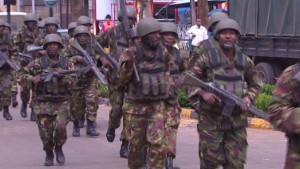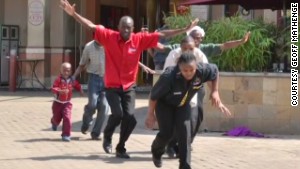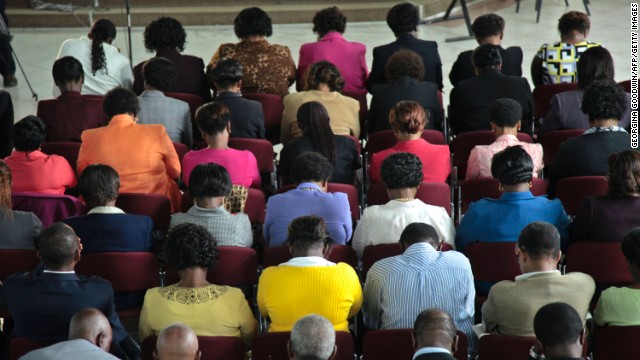Kenyan intelligence warned of Al-Shabaab threat before mall attack
The warnings were made by
the country's National Intelligence Service as part of regular
situational reports given to cabinet members, the inspector general of
police, members of the National Security Advisory Council and military
intelligence.
CNN has seen an
electronic version of those reports, which contain an extensive list of
terror threats from several regions across Kenya over an extended
period, but they also specify Al-Shabaab posed a threat to several
targets, including Westgate Shopping Mall.
The news about the
intelligence warnings come amid revelations that the mall favored by
Westerners and tourists was long-considered a possible terror target.
CNN has also learned that the Westgate mall attackers tortured some of the hostages.
Military doctors said
militants severed hands, cut off noses and, in some cases, hanged
hostages. CNN has seen photographic evidence of one dead victim with a
hand amputated.
Members of Parliament are
expected Monday to begin grilling intelligence bosses, including the
head of the National Intelligence Service, over the apparent
intelligence failures.
 Details reveal mall attackers' brutality
Details reveal mall attackers' brutality
 Bergen: Unlikely women were attackers
Bergen: Unlikely women were attackers
 Nairobi mall: What went wrong?
Nairobi mall: What went wrong?
 Mall security after Kenya: Are we safe?
Mall security after Kenya: Are we safe?
 Voices from the Westgate Mall
Voices from the Westgate Mall
 Heroism during a moment of terrorism
Heroism during a moment of terrorism
The news of the
intelligence warnings follow the September 21 terror attack at Westgate
that resulted in a four-day standoff that left at least 67 people dead
and parts of the shopping center destroyed. Dozens are still unaccounted
for, possibly buried beneath the rubble.
The attackers claimed to be members of the Somali-based Al-Shabaab.
Al-Shabaab itself made
statements claiming responsibility, including saying on Twitter that it
sent the gunmen in retaliation for Kenya's involvement in an African
Union military effort against the group, which is al Qaeda's proxy in
Somalia.
Kenyan forces killed
five terrorists, and 11 others are in custody over possible links to the
attacks, President Uhuru Kenyatta has said.
Immense work remains
But an immense amount of
work remains to learn how Al-Shabaab, a terror group thought to be
badly bruised by recent losses in its Somalian homeland, was able to
pull off such a well-coordinated and brazen attack.
Last year, the Kenyan
military was part of a peacekeeping force that defeated Al-Shabaab
forces to liberate the key Somali port of Kismayo.
Since Kenya launched
attacks against Al-Shabaab in Somalia in 2011, the group has hurled
grenades at Kenyan churches, bus stops and other public places.
It was the deadliest terror attack in Kenya since al Qaeda blew up the U.S. Embassy there in 1998, killing 213 people.
Terrorism experts say
the attack bears eerie similarities to the 2008 siege of a hotel in
Mumbai, India -- another upscale target with Western appeal.
Lashkar-e-Taiba, a Pakistani terrorist group that attacked the hotel for
more than three days, killing 166 people.

 Kenyan mourners attend a prayer
service held for Mbugua Mwangi, President Uhuru Kenyatta's nephew, and
his fiancee, Rosemary Wahito, at St. Andrews Church in Nairobi on
September 26.
Kenyan mourners attend a prayer
service held for Mbugua Mwangi, President Uhuru Kenyatta's nephew, and
his fiancee, Rosemary Wahito, at St. Andrews Church in Nairobi on
September 26.
No comments:
Post a Comment